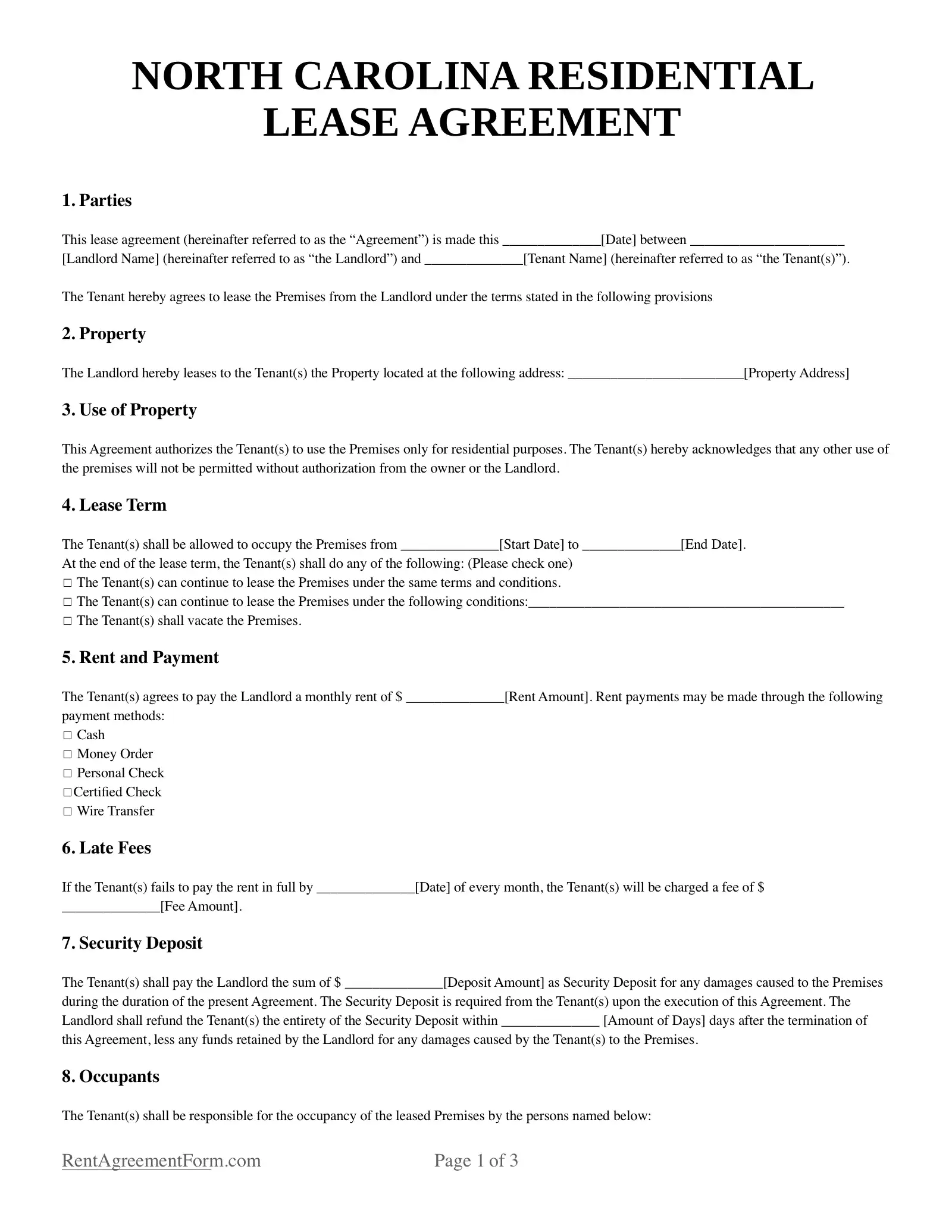North Carolina Residential Lease Agreement Form
A North Carolina Residential Lease Agreement Form is a standard document that must be signed by the landlord and tenant. It is a contract that details all rental arrangements throughout the lease period, such as the monthly rent and the date it must be paid.
The agreement form contains all terms and conditions of the lease. In most cases, the landlord will indicate in the form that the tenant cannot recklessly damage the apartment or house. On the other hand, it is the landlord’s responsibility to repair minor issues of the property like electrical wiring, heating, and ventilation, among other things.
An NC rental agreement also contains all residential property disclosures mandated by North Carolina law. In order to have a valid contract, these disclosures need to be made.
Start making your North Carolina Residential Lease Agreement PDF Form now.

Required Disclosures for North Carolina Residential Lease Agreements
- Lead-Based Paint
There is a federal law, in Chapter 42 U.S. Code § 4852d, against the use of lead-based paint on properties—it was passed in 1978. So if the property being rented out was built before 1978, it is the landlord's responsibility to disclose this information before the tenant signs the lease agreement.
- Structural Damage
A landlord’s primary responsibility is to provide the tenant with a property that is safe and sound. If the property has sustained structural damage, insect damage, or mold issues, it is the tenant’s right to know these things before signing any agreement.
- Utility Disclosure
In some lease arrangements, the tenant pays the landlord for utility services. It then becomes the landlord’s responsibility to inform the tenant if there is a notice to cut off utility service due to the landlord’s failure to pay the utility bills.
- Water Contaminant Level
The landlord must inform the tenant beforehand if they will be charging for water and sewer services. If the supplied water goes over the contaminant level, it is also the tenant’s right to be informed.
Rent Grace Period in North Carolina
North Carolina has a five-day grace period. This means that if the tenant fails to pay rent on time, they have five days before they will be charged a late fee.
The late fee could be $15 or 15% of the monthly rent, whichever is higher.
North Carolina Security Deposit Laws
The state of North Carolina does not require landlords to collect a security deposit, although most of them do so.
The standard lease agreement is one year, and the maximum security deposit that a landlord can impose is two months’ worth of rent. The maximum security deposit is set at a month and a half of the monthly rent for the month-to-month rental contracts. For week-to-week tenants, the maximum security deposit is two weeks’ worth of rent.
The landlord has 30 days to return the security deposit after the end of the tenancy. If the property requires repairs due to damage beyond natural wear and tear, the expense will be deducted from the security deposit. The landlord may also use the security deposit if the tenant has unpaid rent, pending utility bills, or a breach of the lease agreement (NC Gen Stat § 42-51 (2021)).